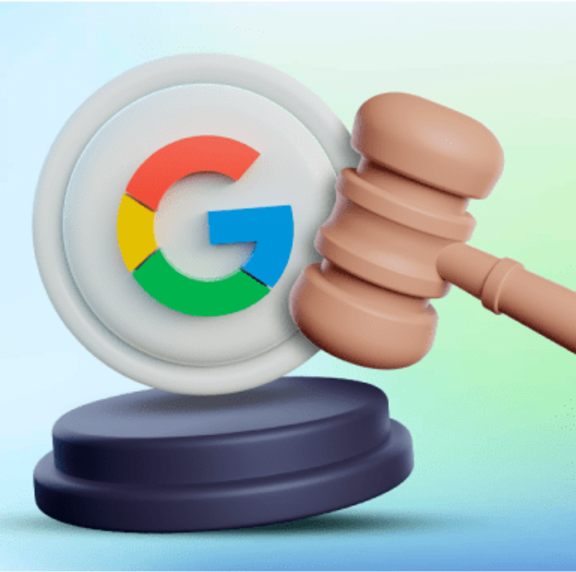
Google is flooded with a lot of information, but finding accurate, trustworthy content is key to maintaining a positive reputation. To address this, Google introduced the Site Reputation Abuse Update, a policy designed to reduce the manipulation of search rankings. In a fast-changing world, search engines play a vital role in providing reliable information that reflects well on your brand and meets the needs of users.
In this blog, you will learn how this update could impact your website or business, covering everything from site reputation abuse penalties to effective strategies for managing your Google reputation management policy.

What is Site Reputation Abuse?
Google site reputation abuse launched in March 2024, but it was hidden behind the major core updates introduced in the same month. The main focus of this update is to strengthen your brand reputation by maintaining the authenticity of the content and rank on the internet.
The policy is made to prevent the various entities, that are acting like hosts for the third-party content that will corrupt the search engine and its genuineness.
For example, a smaller website might publish a guest post or an article on a high-authority site, knowing that this site’s trust signals will help their content rank higher on Google. While this can seem like a harmless partnership at first glance, when done at scale, it can result in significant manipulation of the search results.
This shows that the Google policy is not only targeting third-party content abuse but also partnerships between authoritative websites and content creators.

Why the Google Site Reputation Abuse Update is Important
Google’s goal with this update is to reduce deceptive content practices that can suppress the quality of search results. By understating the terms and policy of site reputation abuse, the companies should ensure that only authoritative, relevant content ranks high on its platform. Otherwise, you may regret it, if Google algorithm detects irrelevant content on your website.
The main reason why the Google Site Reputation Abuse Policy is important is that it directly impacts Google’s reputation management. The update is designed to prevent large, reputable sites from inadvertently or deliberately helping other sites manipulate search rankings. The result? Websites that engage in these shady practices may face site reputation abuse penalties, which could significantly harm their search visibility and traffic.
How Does Site Reputation Abuse Happen?
You might wonder, “How exactly does site reputation abuse occur?” Here are some common tactics:
- White-Labeling: This is when third-party content is placed on a reputable site under a different name, to leverage the host site’s authority.
- Sub-Sections and Licensing: Some companies design sub-sections on their websites or license agreements with other companies to publish content not inherently theirs. This promotes third-party content to rank by relying on the reputation of the primary site.
- Business Partner Exploitation: Sometimes, external companies collaborate with bigger sites to get their content in front of a larger audience while at the same time profiting from the reputation and ranking signals of their partner.
The problem with these policies is that they weaken Google’s ability to provide the best and the most relevant results for users. Instead of authoritative answers, maybe users are going to get led to things that are not as trustworthy or relevant as they should be.
The Google Site Reputation Abuse Penalty

The updated Google Site Reputation Abuse Policy is aimed squarely at these kinds of manipulative practices. If Google determines that a website is hosting third-party content in a way that unfairly exploits its domain authority, then that site may be penalized by a site reputation abuse penalty. Such penalties can include de-ranking or, in extreme cases, complete removal from search results.
But how does Google detect such abuse? Google’s algorithm is now looking at sections of a website more independently. For instance, in case a website that is known for publishing articles on gardening suddenly starts publishing articles on digital marketing, the search engine may treat those sections as a different entity. The main website’s reputation will not automatically pass to these unrelated sections.
This is an important change because only content relevant to the core theme of a website will get a good rank. If your website tries ranking content way outside of your niche, then you could experience less visibility.
Understanding Google’s Reputation Management Policy
To understand this fully, it is important to recognize the wider implications of Google’s reputation management policy. In other words, Google wants to see that the best content rises to the top based on its relevance, quality, and authority, not just because it comes from a highly reputed website.
Any kind of reputation abuse by your site, even indirectly, exposes you to getting a penalty that ruins your reputation and rankings. That immediately affects SEO and visibility.
What Are the Implications of Reputation Abuse?
Reputation abuse due to site reputation abuse can be very harmful. If Google flags your website, some of the following things might befall you:
- Low Rankings: If your website’s content is found manipulative, Google might shift it down in search rankings and affect your visibility.
- Manual Penalty: Google may also manually penalize your site. This often happens when the algorithm finds some suspicious activity, and then a human reviewer confirms that this is an issue. You will receive a message from Google Search Console informing you that your site has been penalized.
- Long-term damage to reputation: Not only your rankings could be affected, but also the algorithm might downgrade your overall reputation. Even after lifting the penalty, your site may continue to suffer rankings for a long time.
- Traffic Losses: The obvious effect of a penalty would be a traffic loss. Dropping significantly into the SERPs will not only mean visitors, but those visitors may contribute less to the revenue, engagement, and overall business performance.
Google Copyright Abuse Cases and DMCA Policy Abuse
Apart from reputation abuse, Google is also cracking down on copyright abuse and DMCA policy abuse. Like site reputation abuse, Google is also fighting against copyright claims abuse. There have been many cases in which websites have used the takedown requests of the DMCA (Digital Millennium Copyright Act) as a weapon to remove content from search results, even though no legitimate copyright infringement had taken place.
How to Protect Your Site from Reputation Abuse Penalties
After finding out how harshly site reputation abuse penalties can be, how will you protect your website? Well, here are the most vital defense strategies in fighting online reputational abuse so you do not get penalized by Google in its policy:
- Focus on Quality Content: Maintain your content relevant and on-topic. In case you publish guest posts or partner with other companies, make sure the content aligns with your site’s main focus.
- Do not use Spammy Content: Make sure all content that you are publishing on your website is of real value. Avoid using content just to rank.
- Keep Track of Backlinks and Content Partnerships: Keep checking the quality of backlinks and partnerships your site is involved in. If you suspect any questionable activity, take action right away to prevent any penalties.
- File a Reconsideration Request: If your site does get penalized, don’t panic. Review the guidelines and fix any violations. Then, file a reconsideration request to Google through the Search Console.
Conclusion
The Google Site Reputation Abuse Update forms part of a broader effort by Google to refine its algorithms in providing users with more relevant and authoritative search results. Google has shifted the search ecosystem towards being more transparent, trustworthy, and relevant by addressing manipulative SEO tactics, particularly site reputation abuse.
If you are following this, then you must face critical results in terms of penalties being directed your way, which can hinder you from reaching the target views of your website. Thus, understanding what Google expects of everyone dealing with the reputation management of these sites is essential. First, it is the commitment to high-quality, meaningful content and transparent practices and ethics in the SEO strategies of websites.
It is thus a key to surviving in 2024 and beyond, remaining updated with the updates, and modifying SEO strategies.
Do not worry if you do not have an idea to rid of this situation and want to prevent such a penalty for your brand, hire the digital marketing agency Satnam Webtech. It has a huge team of experts that has solutions for every issue related to Google updates. This also helps your business to grow in the online and offline platforms with proven strategic approaches.